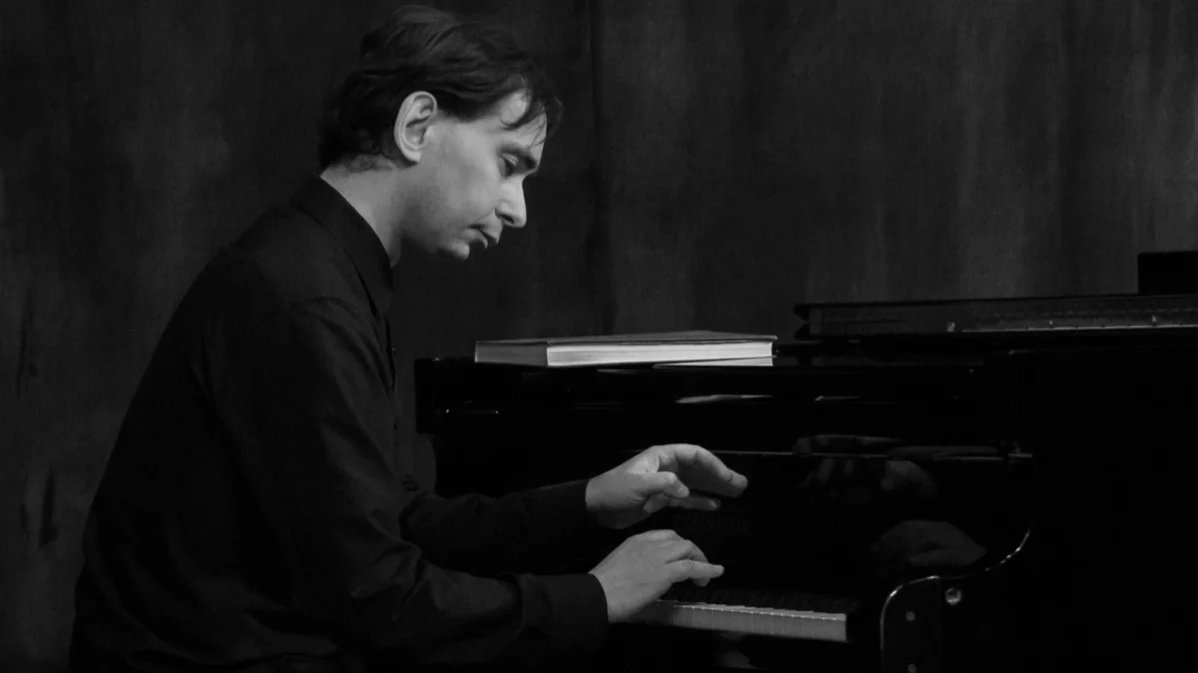There is a barely noticed channel on YouTube which, until recently, had just five subscribers. Now it has more than a thousand. Called Foreign Agent Mulder, in reference to David Duchovny's character in The X-Files, the channel has just four videos. The shortest, entitled Life, is just 51 seconds long, and all the comments beneath it concern the death of the person who made it.
The man in the video is dressed in a black jacket reminiscent of a prison uniform. He has a sailor’s vest on and tinsel draped across his chest. A badge saying FBI is attached to the vest, hand-drawn in blue marker.
“There will never be life under fascism,” he says. “Putin is a fascist, and the peoples of our country gave up millions of their best lives to ensure that there was no fascism. We will not accept it. We will not worship this beast. Down with the war in Ukraine, down with the fascist Putin regime, freedom to all political prisoners, freedom to all prisoners, freedom for everyone.”
Pavel Kushnir — the man in the videos — would be arrested and charged with “publicly calling for terrorism” in May, five months after uploading Life. There is video footage of the arrest itself, with large, masked law enforcement agents leading a thin man in a black shirt away, ultimately to his death.
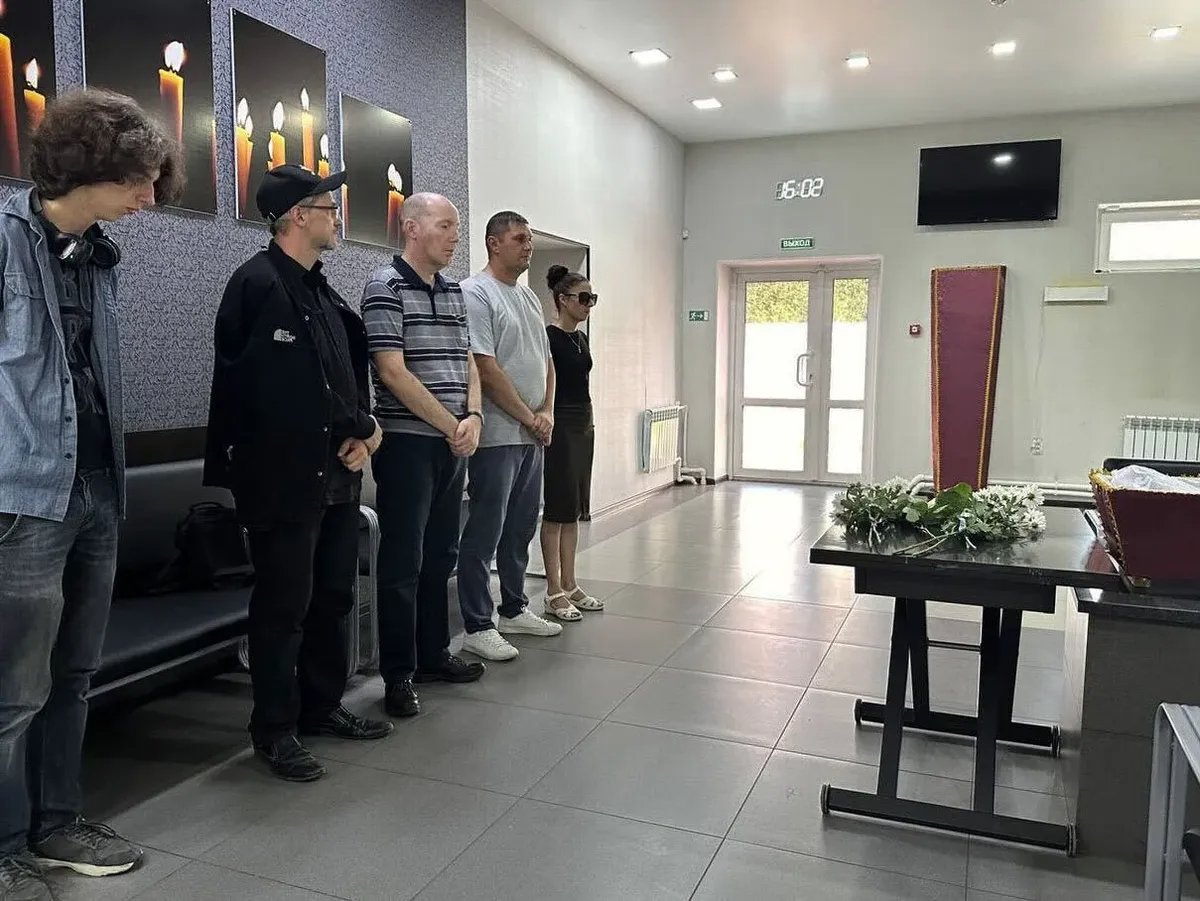
The funeral of Pavel Kushnir in Birobidzhan. Photo: anonymous
Going to his death
The small town of Birobidzhan, with a population of 68,000, is the administrative centre of Russia’s Jewish autonomous region, an area of the country’s Far East that was established for Soviet Jews in 1934, but which is now notable mainly for its absence of a Jewish community. It’s a fairly gloomy place, full of identikit prefabricated apartment buildings, which was captured expertly by Norwegian photographer Jonas Bendiksen in a series of photos in 1999. Nothing much has changed since then, locals say.
Kushnir, who was 39 when he died, only lived in Birobidzhan for a year and a half, moving there from his hometown of Tambov, in central Russia, at the invitation of the local philharmonic orchestra in late 2022.
A graduate of the Moscow Tchaikovsky Conservatory joining a small-town philharmonic orchestra was a big deal in Birobidzhan, and almost all local state media outlets ran pieces on him, describing him as “smart and talented”.
Kushnir is wearing a plain black shirt in all the footage, the same shirt he would eventually wear in his coffin, emaciated after his hunger strike, with a bruise under his eye and blood on his lip and between his teeth.
“We are a family of musicians. His father, grandfather, grandmother and I were all musicians,” Kushnir’s 79-year-old mother Irina Levina told Novaya Europe.
She had tried to discourage her son from moving to Birobidzhan, saying she had a premonition she couldn’t explain.
“It was just a feeling… I literally begged him. ‘Stay! Stay! I’ll help you, I’ll support you financially, just don’t go!’ But he wouldn’t listen and went to his death. That’s all I can say.”
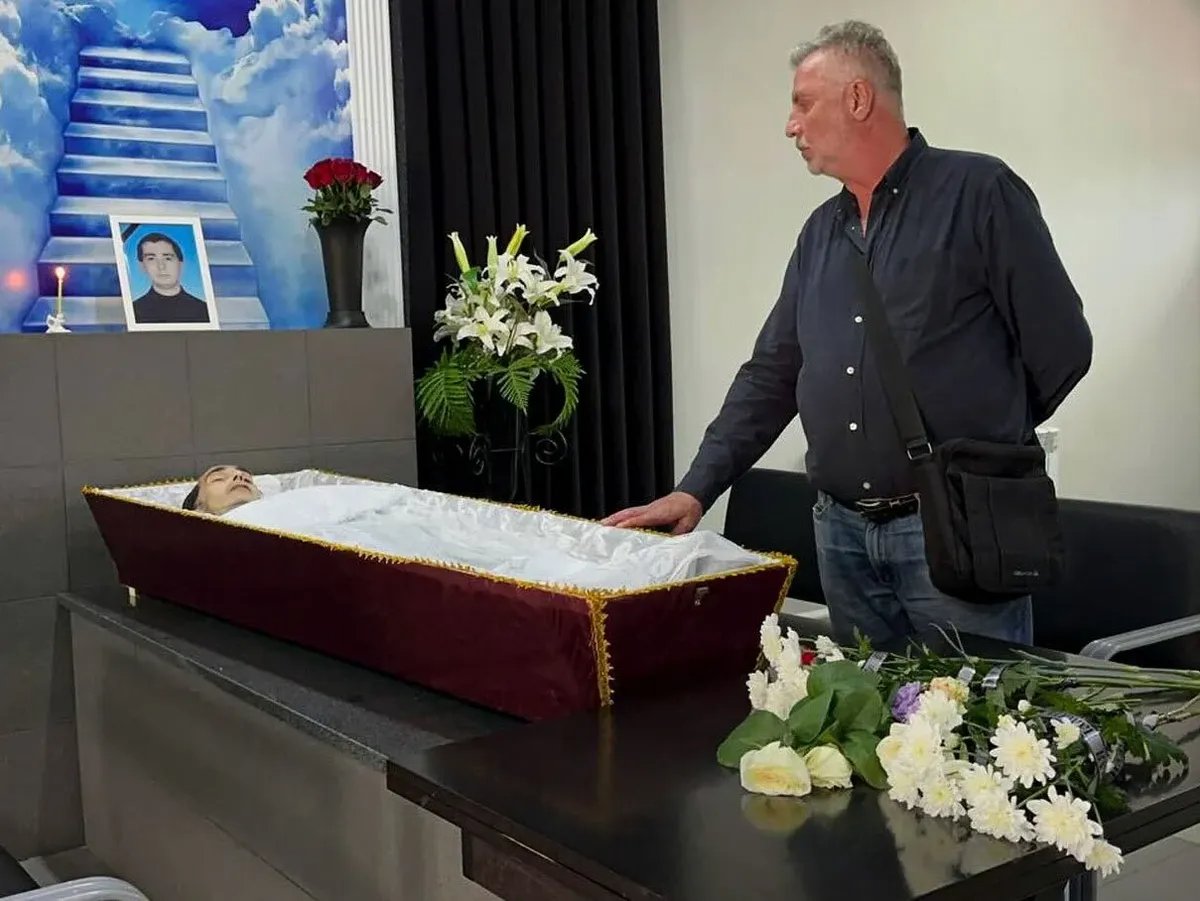
The funeral of Pavel Kushnir in Birobidzhan. Photo: anonymous
Kushnir was indeed a very talented musician. He could perform all 24 Rachmaninoff preludes in one sitting, or all of Shostakovich’s preludes and fugues in a single evening, which is very difficult even for an experienced musician.
“It’s literally like running a marathon for a pianist,” explains musicologist Anna Vilenskaya. “But he could do it in an evening. It was important for him to perform it in one big cycle. It might give some idea of the kind of person he was,” Vilenskaya continues. “He didn’t want to break up the monumental cycle that Shostakovich had in mind. And maybe he didn’t want to break his life up into sections either. He somehow saw his life very holistically. He didn’t want to betray his views,” she adds.
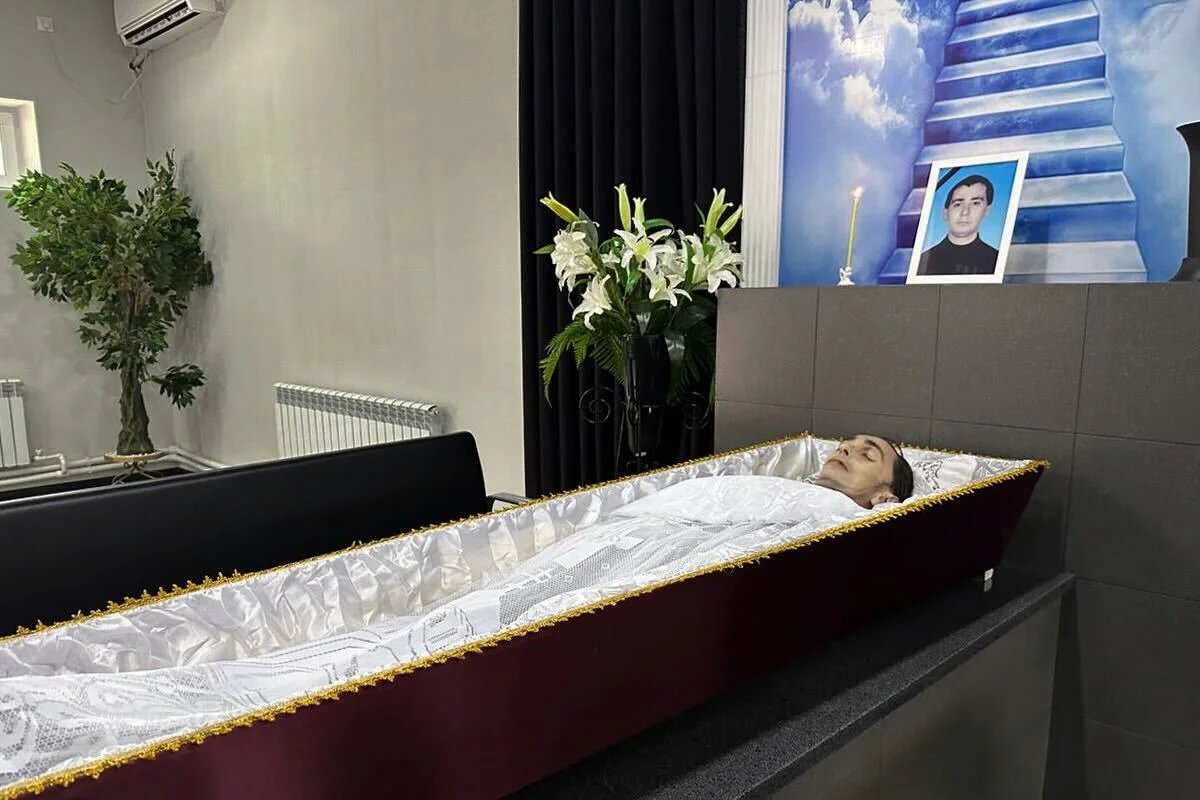
The funeral of Pavel Kushnir in Birobidzhan. Photo: anonymous
No to war
Kushnir was a dyed-in-the-wool pacifist. He took part in the protests against Putin’s re-election on Moscow’s Bolotnaya Square in 2012, and had opposed the war in Ukraine ever since the tragic events in the Donbas began to unfold in 2014. His family also knew his political views, though they didn’t share them, which sometimes led to bitter conflict.
“I knew his views, and we used to argue. But there was no point,” Levina says. “I told him a hundred times that it was dangerous to believe what he believed. A hundred times! And I could see he was afraid,” she recalls.
The war in the Donbas, which began in 2014, played heavily on Kushnir’s mind. He even wrote a book on the subject, “Russian Mash-Up”. It was published by ZaZa, a small publishing house in the German city of Düsseldorf, that made it available online in a print-on-demand format. But there was no demand, at least not until its author died, that is. The book was eventually published in Germany in early August, with all proceeds from book sales to go to the Kushnir family.
“How long can Putin’s life on earth and his illegitimate rule last? Can he achieve Márquez-like longevity in the face of such fucking brutality?” Kushnir wrote.
But that’s not why they came after him. They came after him for four videos on a YouTube channel with five subscribers.
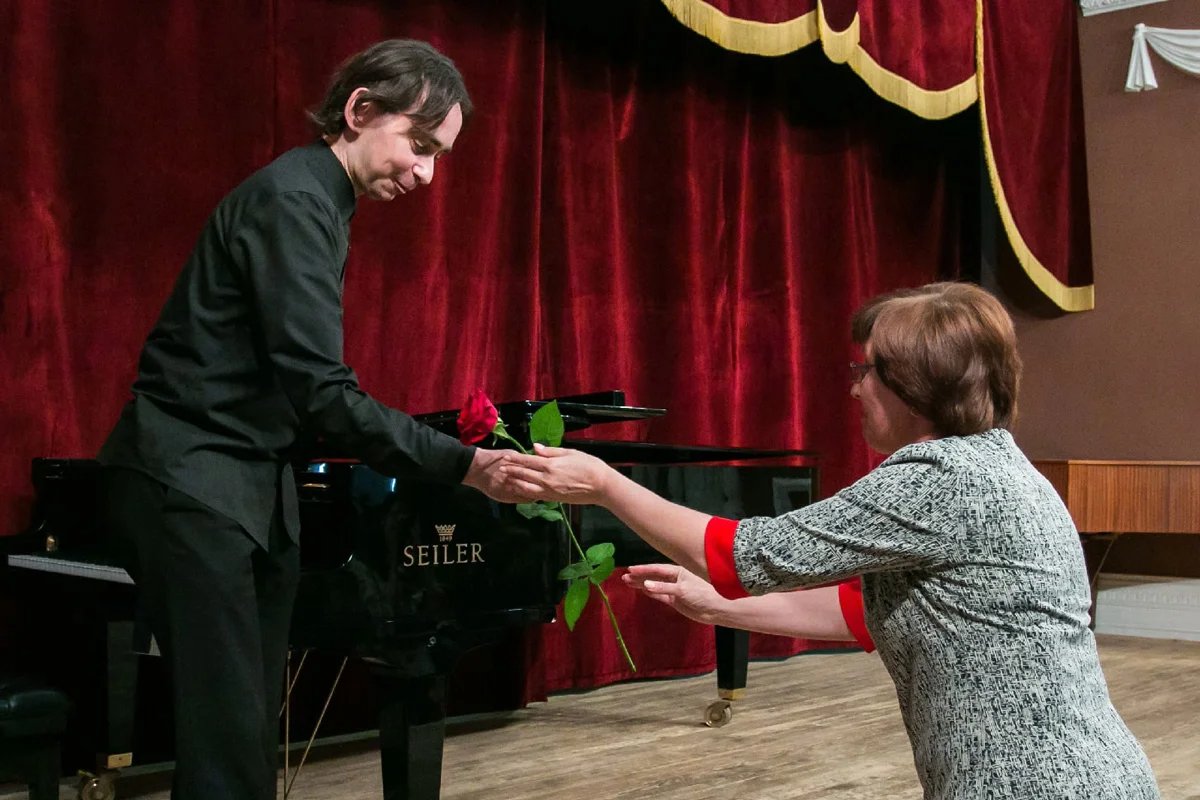
Pavel Kushnir. Photo: Kurgan Philharmonic / VK
The truth is out there
“Don’t get used to fascism. Don’t get used to war. Even if there’s no future, let’s believe in the present. But there is a future. Putin will die. Putin’s fascist regime will collapse. My love will live on. Let’s keep fighting. Let’s go all the way, and stay loyal to our past,” Kushnir said in another of his videos, A Message to Anti-Fascists. He often used the phrase “The truth is out there” — the tag line from his favourite TV series, The X-Files.
Even in small-town Birobidzhan, where, as the locals say, “everyone is afraid and nobody says anything”, the security forces had a quota system and needed to crack down on people every now and again. There may not have been any public protests in the town, but there was a pianist with a YouTube channel.
Few people noticed in Birobidzhan, let alone the rest of Russia, when Kushnir was detained in May. He was charged with publicly calling for terrorism on the internet, a crime punishable by up to seven years in prison. He went on hunger strike the day he was detained.
It was not the first time he had protested that way. He had already gone on hunger strike against the war in Ukraine in 2022, while still a free man. That time, almost nobody knew. Kushnir mentioned the protest in an interview his friend and fellow pianist Olga Shkrygunova posted on Facebook in August 2022. She didn’t say which journalist or media outlet had interviewed him, and it only appeared on her Facebook page. Very few people noticed the interview, and it got just 10 likes. That time, Kushnir refused food and water for 20 days.
“I have no trouble dealing with the hunger physically. I chose this form of protest when I thought people had begun to get used to the war, to accept it, in order to set an example, to attract attention,” Kushnir said in the interview.
The second time he went on hunger strike for 100 days. He didn’t eat, but he drank fluids. He worked throughout and performed concerts. Kushnir also produced leaflets saying “Putin is a fascist” and distributed them around Birobidzhan.
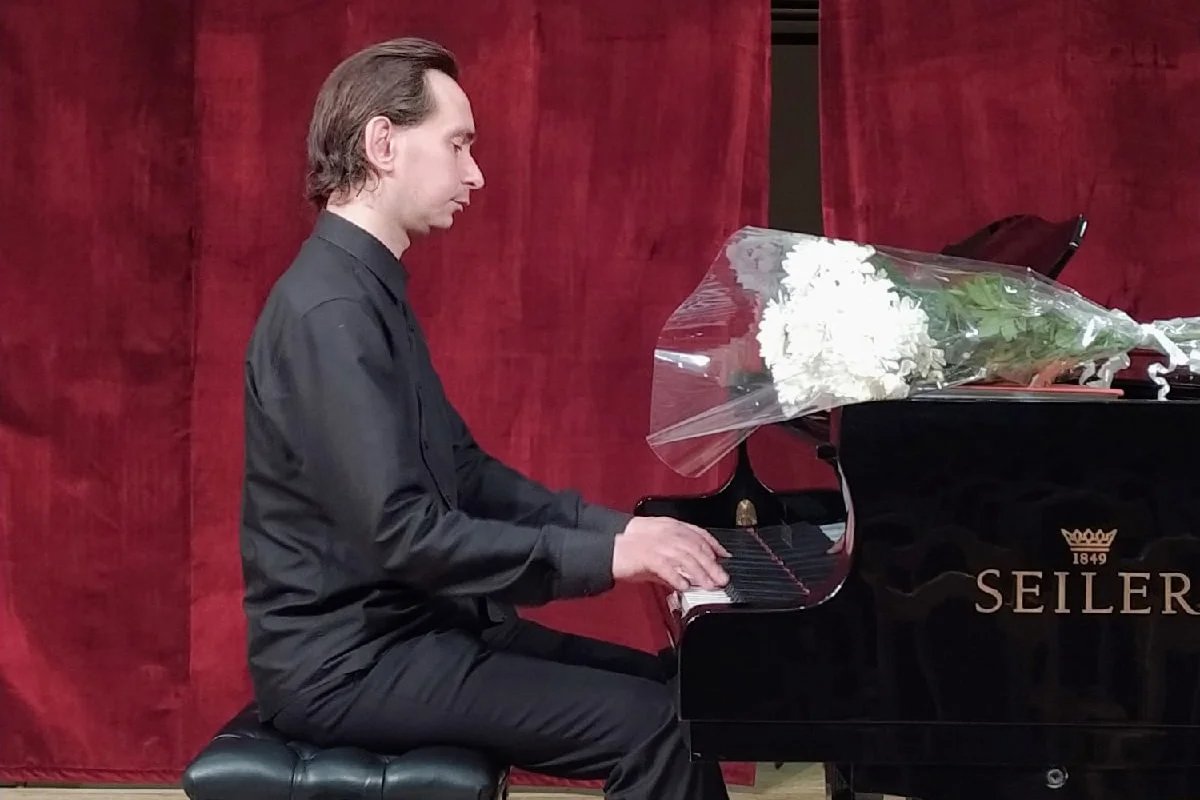
Pavel Kushnir. Photo: Kurgan Philharmonic / VK
Kushnir sent emails to friends during that second hunger strike in 2023, telling them he demanded “the dissolution of the fascist regime, an end to the war in Ukraine and the release of all political prisoners”.
Kushnir said the Bucha massacre early in the war was a turning point for him. When asked who knew he was on hunger strike, Kushnir said just his close friends. “Tell me, should we change your name for security reasons?” the interviewer asks. “No need. Whatever happens happens, and may God help us,” he replied.
Kushnir spent his final days in a prison medical unit. He died on 27 July, his mother was informed the following day, and Olga Romanova, who heads prisoners’ rights organisation Russia Behind Bars, shared the news with the world on 2 August.
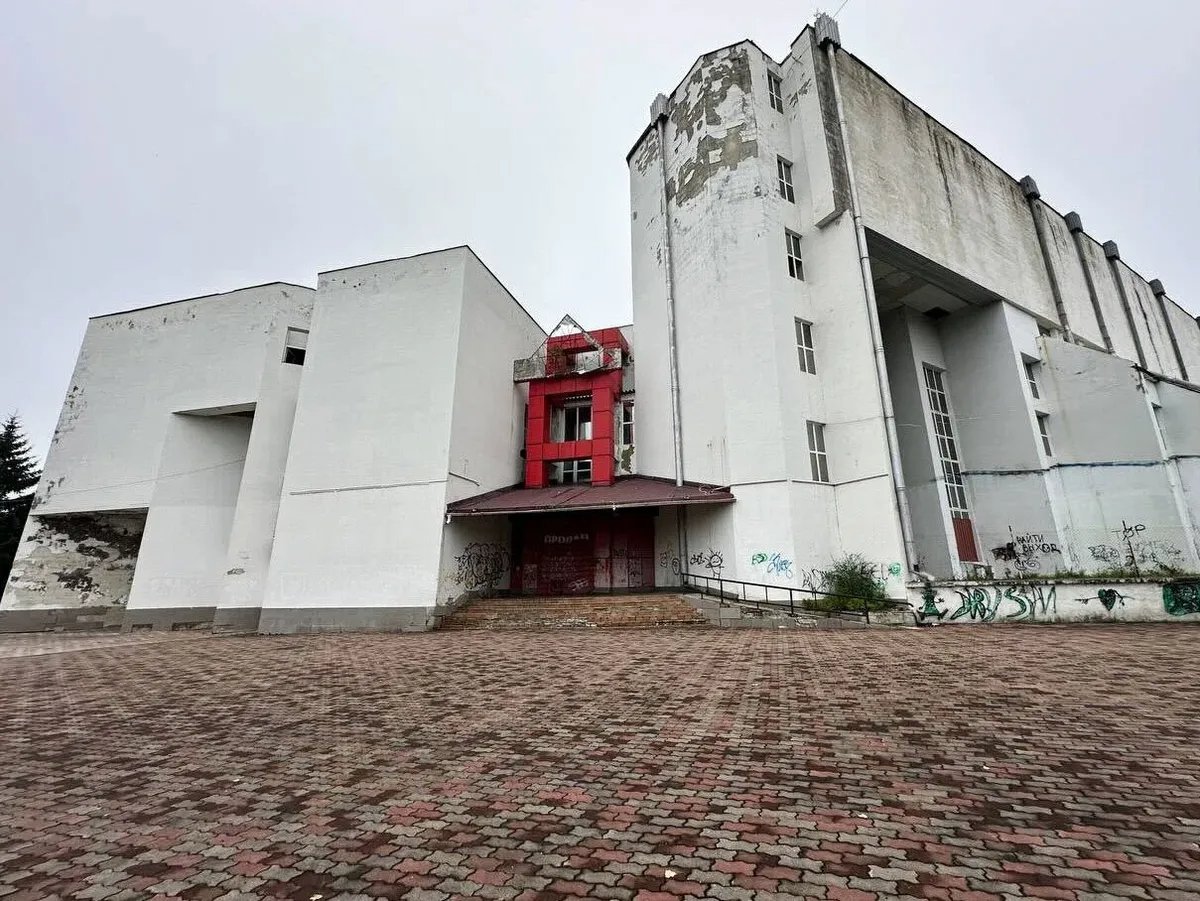
Birobidzhan Philharmonic. Photo: Kurgan Philharmonic / VK
The prison service gave “dilated cardiomyopathy and congestive heart failure” as the official cause of death. Kushnir had never previously suffered from heart problems. Photos of Kushnir in his coffin show a bruise above one eye and blood on his lips. His mother refused to give her permission for an independent autopsy to be carried out, which means the cause of her son’s death will never be known for sure.
Farewell
Kushnir’s funeral was held in Birobidzhan on 8 August. Neither his mother nor his brother attended the ceremony. There were 11 people in total: two journalists, two Philharmonic employees, two fans, a friend, a poetess, two activists and a schoolchild.
One attendee told Novaya Europe that even some of those there were afraid to attend. One of the Philharmonic staff members came in large sunglasses and refused to talk to journalists. Attendees were initially reluctant to say any parting words. An activist from the city of Khabarovsk, 200 kilometres east of Birobidzhan, eventually spoke and remarked that Pavel’s face had been “beaten up”, to which nobody voiced an objection.
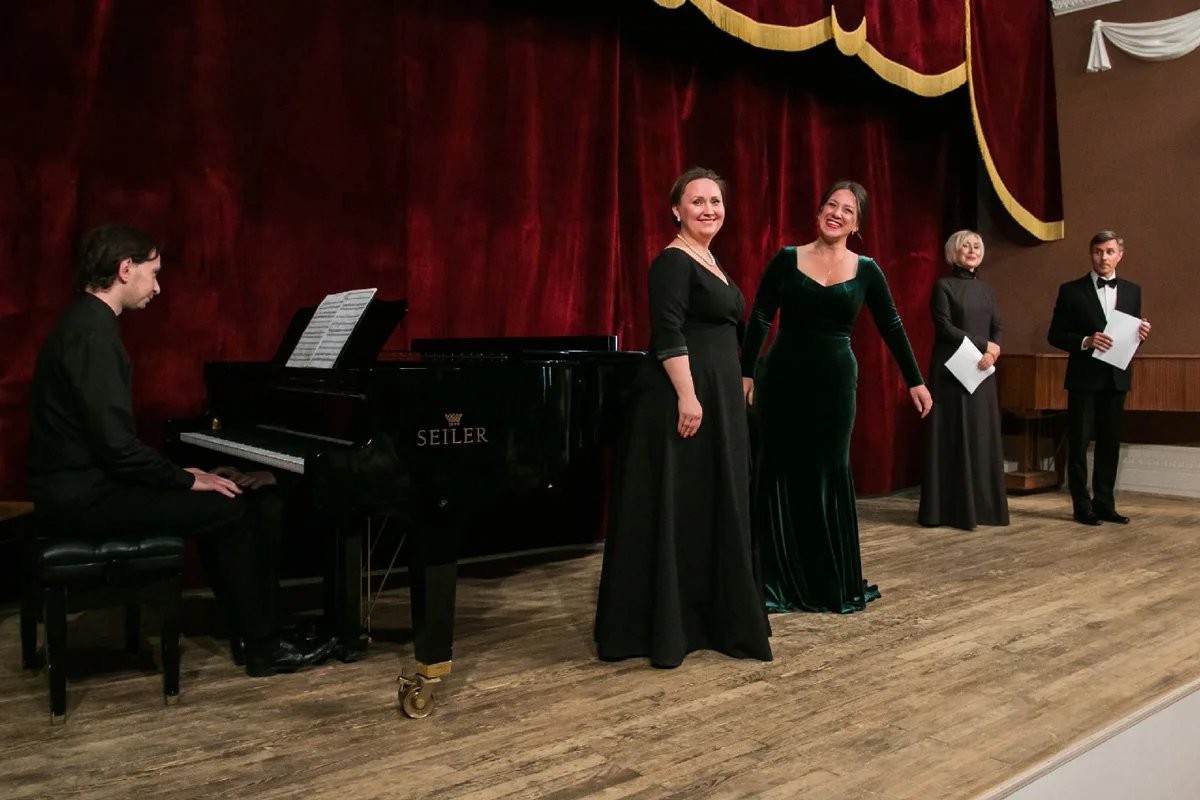
Pavel Kushnir. Photo: Kurgan Philharmonic / VK
“We could all see it. He had been beaten up. He had a bruise above one eye and traces of blood between his teeth, which we could see as his mouth was slightly open. I said this was the death of a martyr, and we needed to make sure it never happened again,” the activist told Novaya Europe. He didn’t know Kushnir, having first heard about him after his death, but still came to pay his respects.
Time passed and everyone remained silent. He approached people and asked them to “say something”, because it would be “uncivilised” if nobody said anything. Finally, the activist himself stood up to speak.
“People have only discovered what a wonderful person he was after his death, which is terrible, of course. People in Birobidzhan knew him for the musician and interesting character he was. Beyond that, nobody else knew him. Not in Khabarovsk, where I’ve come here from, nor in Vladivostok, not even in towns closer by, not to mention Russia as a whole… But his death came as a shock to all decent people. Now people know him. But at what price?” he said.
“I spoke to the person in the shop when I bought flowers. I said, ‘A local guy was tortured to death’. But he didn’t know. And the other people I spoke to either didn’t know or pretended they didn’t know,” the activist continued.
Kushnir’s body was taken to Khabarovsk to be cremated as Birobidzhan doesn’t even have a crematorium. His mother insisted he be cremated. The urn was then flown to Tambov for burial. Nobody talks about Kushnir in Birobidzhan. In fact, only a few people locally know that he lived and died there at all.
Join us in rebuilding Novaya Gazeta Europe
The Russian government has banned independent media. We were forced to leave our country in order to keep doing our job, telling our readers about what is going on Russia, Ukraine and Europe.
We will continue fighting against warfare and dictatorship. We believe that freedom of speech is the most efficient antidote against tyranny. Support us financially to help us fight for peace and freedom.
By clicking the Support button, you agree to the processing of your personal data.
To cancel a regular donation, please write to [email protected]
